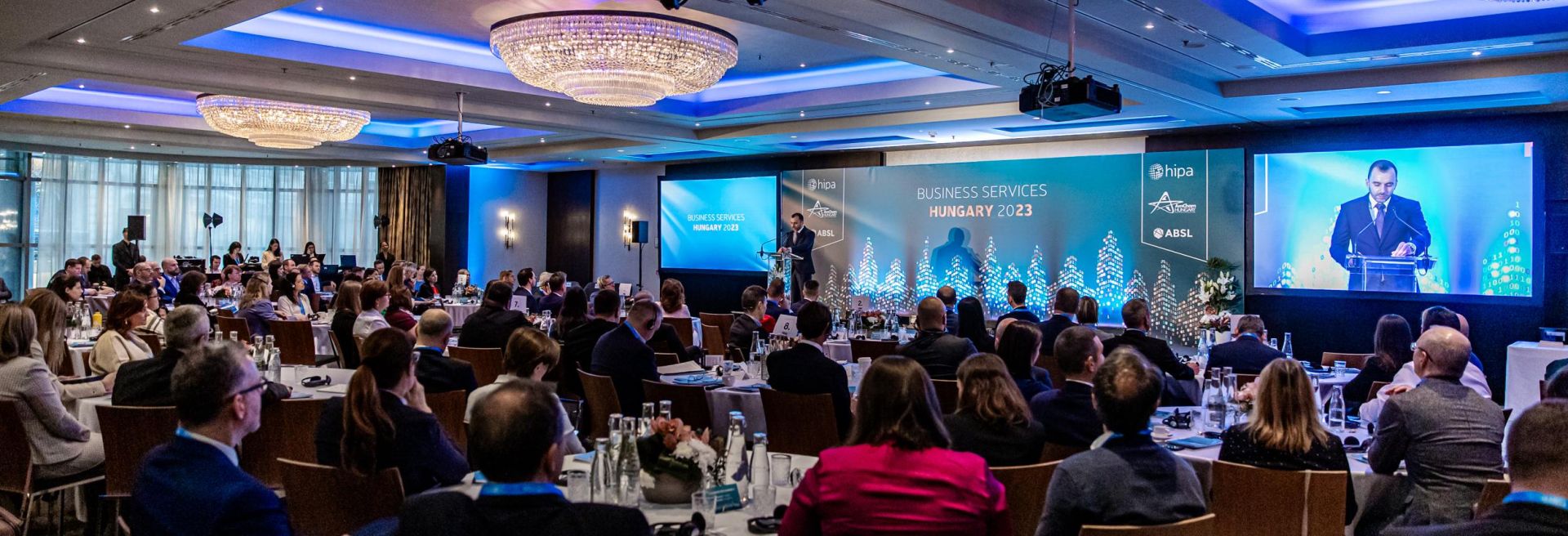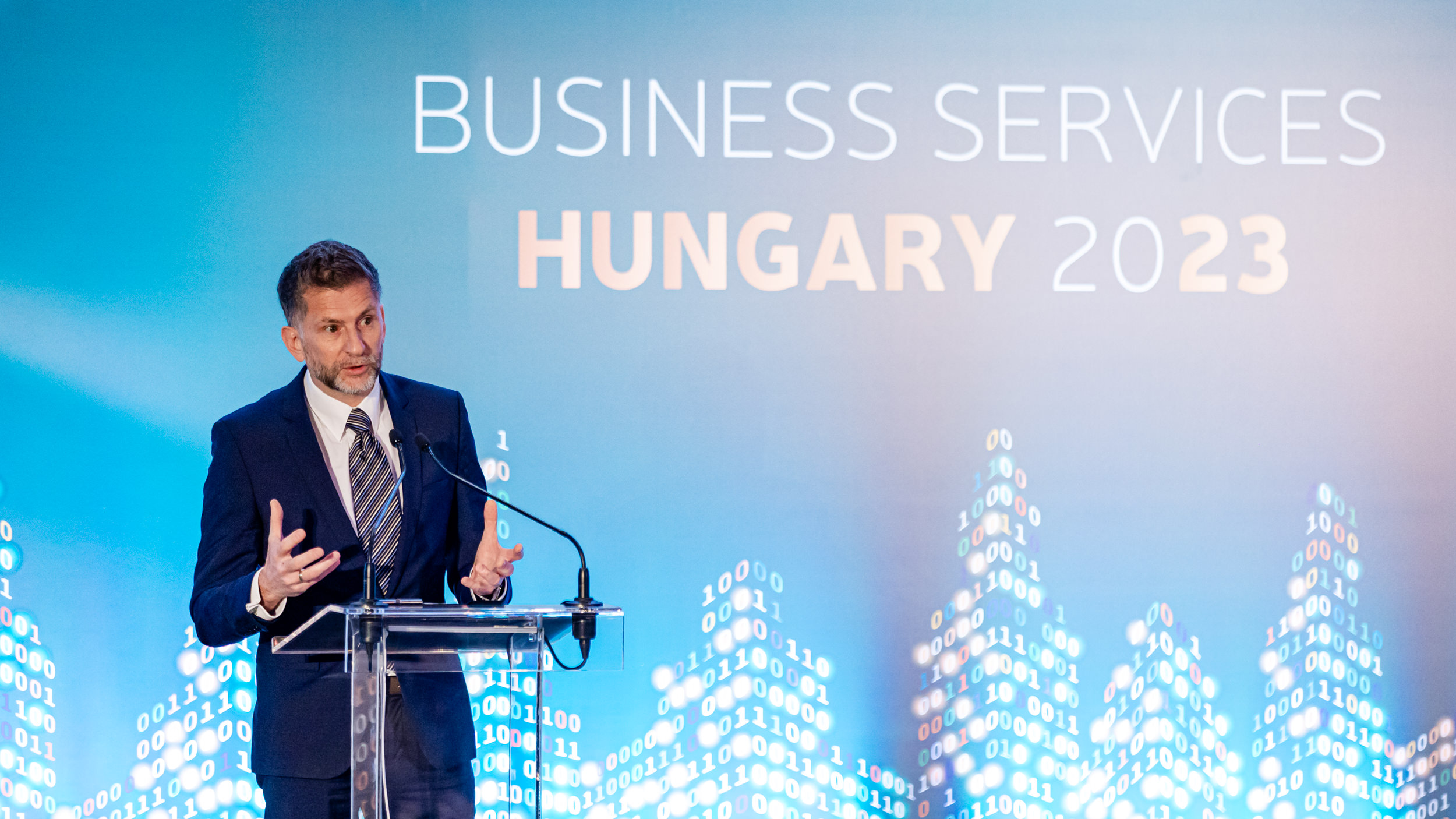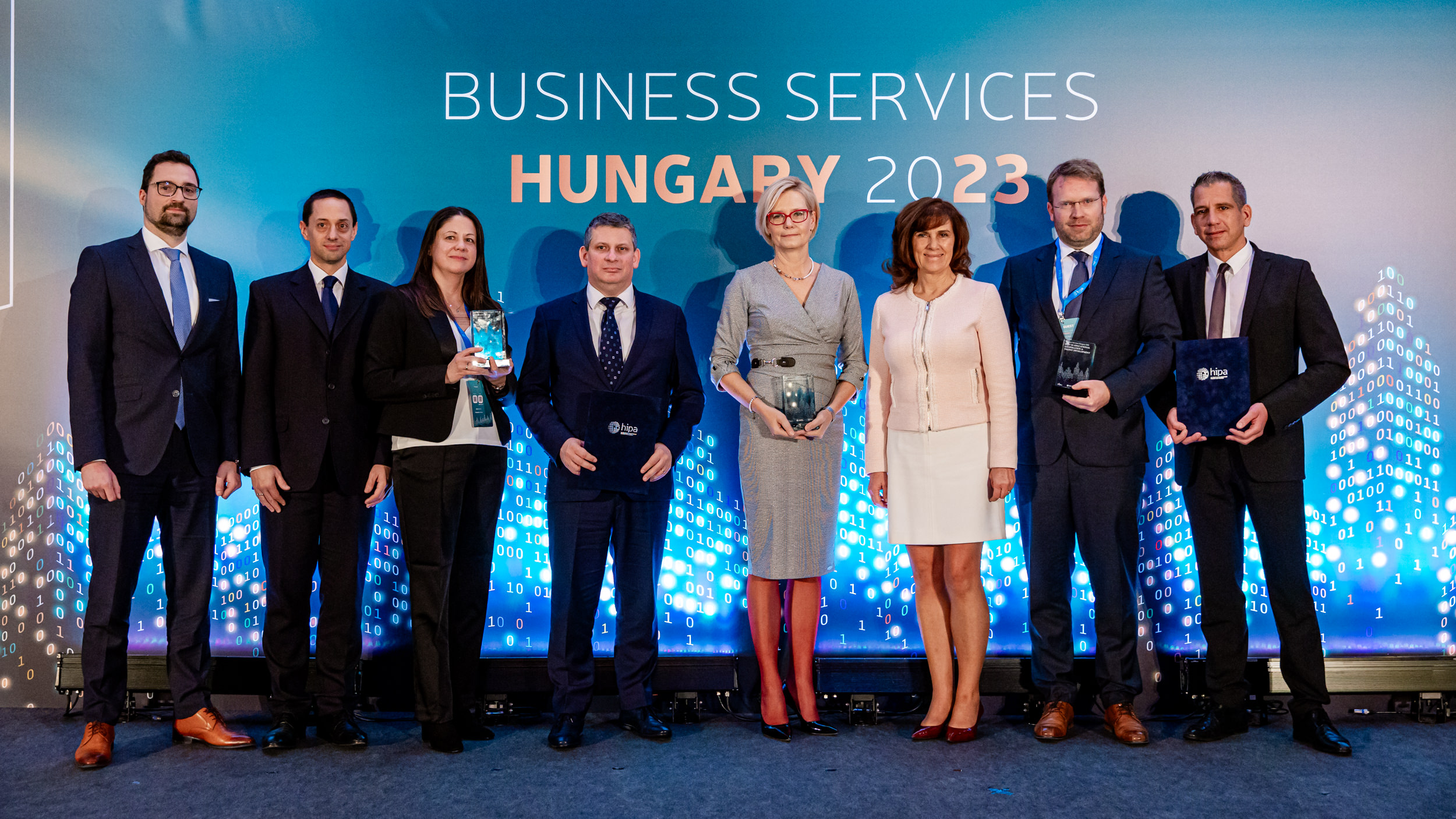
Business Services Hungary 2023: Hungary Benefits From Quality of Life Becoming Major Factor of BSC Site Selection
2023. 12. 04.
HIPA in association with AmCham Hungary and ABSL Hungary revealed the latest edition of the business services study in its flagship event Business Services Hungary 2023 Conference that featured top notch experts of the industry. The figures tell a tale of rapid success and a good chance for more development as companies bring ever more high value-added functions to the country. On the other hand, instead of costs, the strong talent pipeline and quality of life are the main factors that are increasingly tipping the balance in favor of the region when it comes to site selection. In addition, stakeholder excellence was recognized in three categories at the HIPA BSC Awards.
HIPA’s BSC Survey was first conducted in 2018 in an effort to raise the profile of the sector, and by now it has become the source of invaluable insights. Since last year the study wasn’t prepared, this year’s edition covered a two-year period that gives an even more comprehensive understanding of the latest trends shaping the Hungarian BSC market.
Based on the data it is clear that BSCs have witnessed exceptional growth: by now over 100,000 people work in 201 facilities. Those figures were 70,000 and 156 in 2021, respectively.
HIPA CEO István Joó addressed the audience. In Hungary some 290,000 students study in 63 higher education facilities that form robust potential for businesses in the services sector.

As revealed by the Survey, four out of five BSCs plan to deploy more high value-added functions here in the next three years. This is an indication that Hungary is clearly moving up the value chain.
“We would like to attract even more BSCs to Hungary, and we will continue to support those that are already here to grow and bring high value-added functions to our country,” Mr. Joó pointed out.
The Necessity of Powering up Education
AmCham Hungary President Zoltán Szabó emphasized the importance of education of which improvement needs to start now to get results down the line.
he said. Hungary is often referred to as a best-cost country, but most young people are driven by higher salaries and the prospect of working abroad which puts pressure on employers.
“Companies need to be able to retain talent, while remaining competitive on the cost level,” Mr. Szabó pointed out. He also elaborated on how coordinated branding effort by stakeholders to raise the profile of the sector pays off. As he concluded, it is in everyone’s best interest to keep the most suitable candidates within the industry because it strengthens the ecosystem.
CEE put Into Perspective
The CEE region is attractive for BSC investors based on three factors: cost, talent and quality of life. Cost is less important, though, than it was five or ten years ago. On the other hand, not only students, but also experienced specialists are employed in high numbers which gives ever bigger weight to the sector.
ABSL President Jacek Levernes, said.
The CEE region doesn’t compete with Asia at all, but rather with locations like Portugal or Spain that have similar costs of living and salary levels. However, the power of the Budapest brand shouldn’t be underestimated, either. Apart from the Hungarian capital, Prague has a similarly positively strong reputation that is a magnet by itself. “These brands must be strengthened,” Mr. Jacek added.
Embracing the digital mindset can be key to create an environment that makes highly people stay. Oftentimes those that study in TIER2 cities would actually prefer to stay, and decide to go abroad only because of the lack of opportunities. BSCs can do a lot to stop the brain drain.
Currently every fourth BSC is located in the countryside and 10% of respondents plan to expand there in the near future. Special incentives offered by HIPA sweeten the deal for companies to set up shop in areas away from the capital.
Rosy Outlook
Citi’s head of CEE economics Piotr Kalisz gave an overview of the regional economic backdrop against which stakeholders aim to prevail. As to costs, hourly labor costs are still substantially below Western Europe, but within the region the differences are not that significant. Unemployment is super low, with the Czech Republic and Poland leading the pack.
On the other hand, unemployment didn’t grow in CEE in spite of the recession and the big influx of migrants from Ukraine. The economy is further projected to bounce back stronger than in Western Europe. Hungary’s growth rate should be twice as big as the global average, whereas Germany is expected to be contracting.
Hungary stands a good chance to keep attracting FDI in the BSC sector. Investors still find good value for money here in spite of labor market challenges. The country also has a lot to offer on the taxation front: a record low corporate tax of 9%, a 15% flat income tax rate and several other related measures (i.e. tax exemption for the under 25 age bracket) make it a perfect choice for investment. Lucrative training incentives further help companies educate their workforce and provide them with attractive career paths. These are all key for the BSC market to thrive.
BSC Awards
The very best BSCs were also recognized in three categories at the event after on-site voting:
- KOSTAL Group (Investor of the Year)
- Tata Consultancy Services (Business Excellence and Innovation)
- Thermo Fisher Scientific (Best in Education Cooperation & Talent Development)
Congratulations to the winners!
Related articles
Sector articles
The business services center (BSC) sector has closed another record year in Hungary, achieving outstanding results at the regional level, according to the latest survey conducted in collaboration with the HIPA Hungarian Investment Promotion Agency, the findings ...
2024. 11. 14.
BSC #BSCCallComm Zrt. has inaugurated its new office in Nyíregyháza, located within the Nyíregyházi University building. This EUR 2.7 million investment has created 100 new jobs and launched professional and foreign language training programs for 150 employees, paving t...
2024. 05. 24.
BSC #BSCSenior executives of the regional Business Services Center sector gathered for the eleventh time in Warsaw, Poland to celebrate the winners of the CEE Business Services Summit & Awards where Trivium Packaging BSC Kft. and ExxonMobil Hungary were recognized as re...
2023. 03. 14.
BSC #BSC


